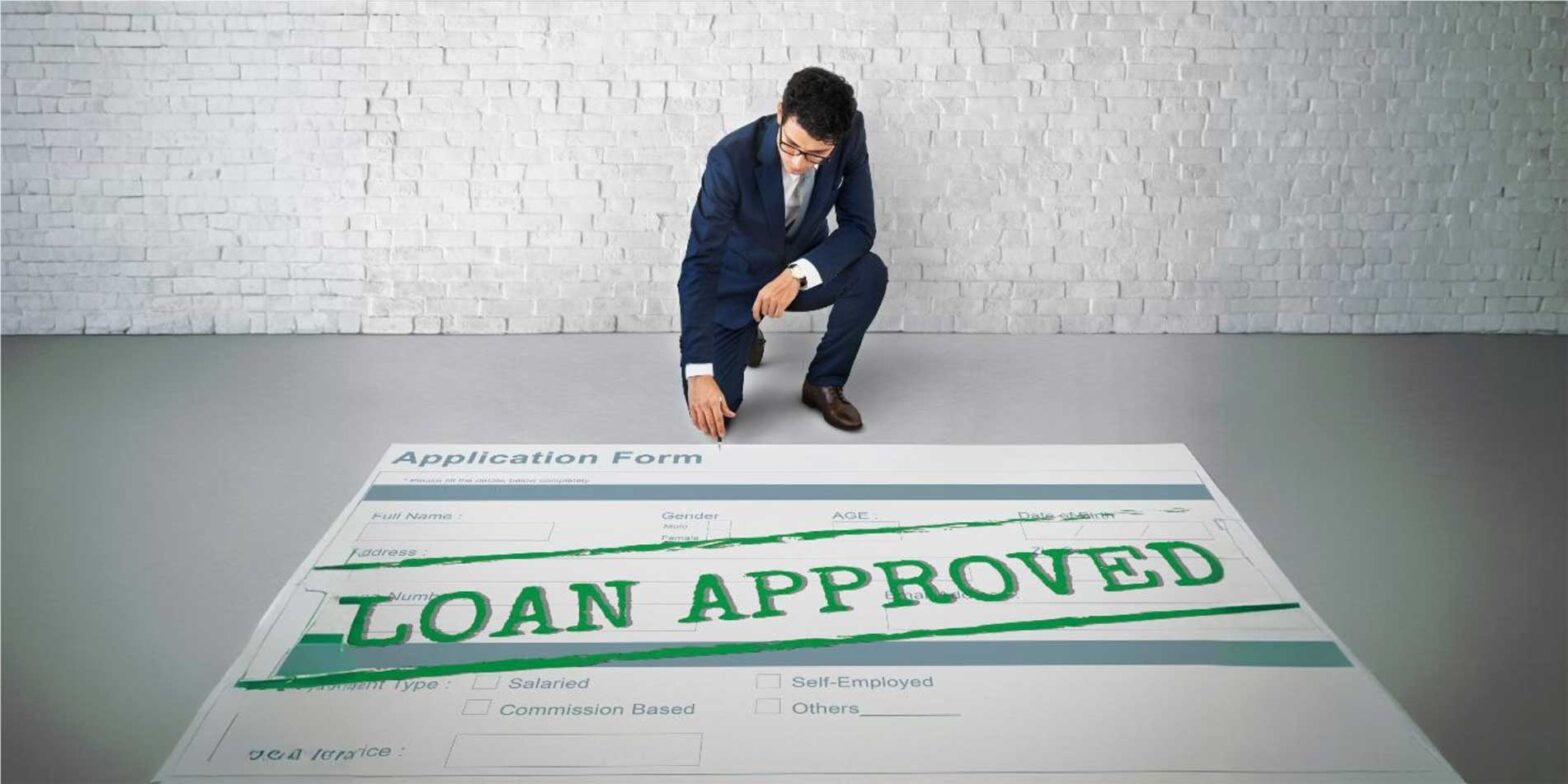Wondering how soon you can withdraw cash value from life insurance? Learn the timelines, options, and smart tips to access your funds quickly and safely.
Category Archives: Uncategorized
Why You Must Plan for a Partner’s Death in Business
What happens when a business partner dies? Without a solid buy-sell agreement, it can lead to financial chaos. Learn how to protect your business now!
Smart Retirement Planning: Key Strategies for Financial Security in Canada
Plan for a secure retirement with expert strategies. Maximize RRSP & TFSA contributions, manage debt, & diversify investments for long-term financial stability.
Crypto vs. Real Estate: Where Should You Invest in 2025?
Investing is all about making the right choices. Two of the hottest options today are cryptocurrency and real estate. Both have created millionaires. Both come with risks. But which is the smarter investment for 2025? Let’s break it down. Why Investors Love Crypto Cryptocurrency has taken the world by storm. Bitcoin, Ethereum, and other digital assets have skyrocketed in value over the years. Here’s why high-net-worth investors consider crypto: 1. High Potential Returns Crypto has seen explosive growth. Bitcoin was once worth pennies. Now, it trades for tens of thousands. Those who got in early made fortunes. 2. Liquidity Unlike real estate, crypto can be bought and sold instantly. No waiting for buyers, no real estate agents, and no paperwork. This makes it a flexible asset. 3. 24/7 Market Stocks and real estate have trading hours. Crypto is different. You can trade anytime, anywhere. This allows for quick reactions to market changes. 4. Hedge Against Inflation Many investors see Bitcoin as “digital gold.” With a limited supply, it may hold value better than traditional currencies during inflationary periods. 5. Decentralization & Innovation Blockchain technology is changing finance, real estate, and even healthcare. Many believe investing in crypto is investing in the future of technology. Why Investors Trust Real Estate Real estate has long been a go-to investment for high-net-worth individuals. Here’s why it remains a strong contender: 1. Stability and Predictable Growth Real estate is far less volatile than crypto. Property values typically rise over time, making it a stable long-term investment. 2. Passive Income Owning rental properties generates steady cash flow. Unlike crypto, which relies on price speculation, real estate provides tangible income. 3. Tangible Asset Real estate is a physical asset. It won’t disappear overnight. Even in market downturns, properties hold intrinsic value. 4. Tax Benefits Real estate investors enjoy tax advantages like depreciation, mortgage interest deductions, and capital gains benefits. These incentives boost overall returns. 5. Leverage Opportunities With real estate, investors can use leverage to buy properties with borrowed money. This increases potential returns without requiring full upfront capital. Crypto vs. Real Estate: Key Comparisons Factor Crypto Real Estate Volatility High Low Liquidity Instant transactions Can take months Passive Income No Yes, through rentals Tax Benefits Limited Significant Leverage No Yes Tangible Asset No Yes Which is Better for High-Net-Worth Investors? Best for Growth: Crypto If your goal is fast growth, crypto offers high upside potential. However, this comes with extreme volatility. Investors should be prepared for rapid price swings. Best for Stability: Real Estate If you prioritize stability and long-term wealth, real estate wins. It provides consistent income, appreciates over time, and comes with strong tax advantages. Best for Diversification: Both Smart investors don’t put all their money in one basket. A combination of real estate and crypto can balance risk and reward. What Financial Experts Recommend Most financial advisors, including those at Orooj Financial, suggest diversification. Allocating a portion of your portfolio to real estate for stability and another portion to crypto for high-growth potential can be a strategic approach. However, your investment choices should align with your risk tolerance, financial goals, and market conditions. For expert financial guidance tailored to high-net-worth individuals, visit Investopedia and Forbes Finance. Final Thoughts Crypto and real estate both offer unique advantages. Crypto is fast, high-risk, and high-reward. Real estate is stable, income-generating, and tax-friendly. In 2025, the best investment depends on your financial strategy. If you’re serious about growing and protecting your wealth, consult with a financial expert. Investing wisely today ensures a secure future tomorrow.
Estate Planning 101: Safeguard Your Family’s Future with Orooj Financial
Estate Planning in Canada: A Stress-Free Guide Estate Planning in Canada ensures your money, property, and belongings go to the right people—without confusion or delays. At Orooj Financial in Oakville, we make Estate Planning in Canada simple and clear. Let’s break down how to protect your legacy. Why Estate Planning in Canada Matters Without a plan, Canadian laws decide who gets your assets. This can lead to family stress, tax headaches, or long legal processes. But with Estate Planning in Canada, you take charge. Here’s why it’s key: Avoid probate delays and keep your family’s future secure. Lower taxes so more of your wealth stays with loved ones. Choose who inherits your home, savings, or special items. 5 Simple Steps for Estate Planning in Canada 1. List What You Own Start by writing down everything: your home, car, bank accounts, and even sentimental items like jewelry. This helps organize your Estate Planning in Canada. 2. Name Your Beneficiaries Next, decide who gets what. For example, leave savings to a spouse or donate to charity. Remember: Beneficiaries on life insurance or retirement accounts (like RRSPs) override your will—update them regularly! 3. Cut Down on Taxes Taxes can shrink your estate’s value. With smart Estate Planning in Canada, you can: Gift money tax-free while you’re alive. Use Tax-Free Savings Accounts (TFSAs). Set up trusts for kids or grandkids. For tax rules, visit the Canada Revenue Agency (CRA). 4. Write a Will A will is the heart of Estate Planning in Canada. It lets you: Pick guardians for children or pets. Choose an executor to manage your estate. Avoid Ontario’s default inheritance laws. Learn more from the Ontario government. 5. Plan for the Unexpected What if you can’t make decisions due to illness? A Power of Attorney (POA) lets someone you trust handle your money or health care. Create both a financial POA and a healthcare POA. For legal help, visit the Law Society of Ontario. How Orooj Financial Simplifies Estate Planning in Canada We’re your Oakville experts, and here’s how we help: Easy Explanations: No confusing jargon—just clear advice. Tax Savings: We find ways to keep more money in your family’s hands. Free Updates: Life changes? We’ll adjust your plan yearly. FAQs About Estate Planning in Canada Q: Is this only for wealthy people? A: No! Estate Planning in Canada matters for everyone, big or small estates. Q: How much does it cost? A: Costs vary, but starting early saves money and stress. Q: Can I do it alone? A: Yes, but experts like us ensure no steps are missed. Start Estate Planning in Canada Today Don’t wait—life is full of surprises. Contact Orooj Financial for friendly, no-pressure help. Let’s protect your family’s future together!
When Should You Start Estate Planning? A Guide for Canadians
Estate planning is an essential step to secure your family’s future. Many people delay it, assuming it’s only for the elderly or wealthy. But is there a “right” age to begin? Let’s break it down. Why Estate Planning Matters Estate planning isn’t just about writing a will. It’s about ensuring your loved ones are taken care of and your assets are distributed according to your wishes. It also includes decisions about healthcare and guardianship. These plans provide peace of mind, knowing you’re prepared for life’s uncertainties. The Typical Age for Estate Planning Most people start estate planning between their late 30s and early 50s. This is often when life events like marriage, buying a home, or having children occur. However, there’s no need to wait for a milestone. Starting earlier has significant advantages, including flexibility to adapt your plan as your life evolves. Key Milestones to Consider Estate planning becomes especially important during these stages: Your 20s and 30s: If you have significant savings, investments, or debts, it’s time to create a basic plan. Appointing a power of attorney and writing a simple will can make a big difference. Your 40s and 50s: With growing responsibilities, including children or aging parents, you’ll likely need a more comprehensive plan. Consider trusts and strategies for tax efficiency. Your 60s and beyond: By this stage, focus on refining your plan. Ensure it reflects any recent changes in laws, your health, or your family’s needs. Why Canadians Should Act Sooner In Canada, estate planning also involves understanding provincial laws. For example, Ontario’s Estate Administration Tax applies to many estates. Starting early gives you time to minimize costs and avoid disputes among beneficiaries. Additionally, if you’re a business owner, creating a succession plan is crucial. This ensures a smooth transition and protects your legacy. How to Get Started Assess Your Assets: List your properties, savings, investments, and other valuables. Don’t forget digital assets, like online accounts. Determine Your Goals: Decide who should inherit your assets and who will make decisions if you cannot. Consult a Financial Advisor: Experts, like those at Orooj Financial, can guide you through the process. They’ll ensure your plan aligns with your financial goals and Canadian regulations. Learn more about estate planning here. Regularly Update Your Plan: Life changes. Your estate plan should, too. Review it every few years or after major life events. Common Misconceptions “I don’t have enough assets.” Estate planning isn’t just for the wealthy. It’s about protecting what you have and ensuring it’s distributed fairly. “I’m too young.” Accidents and unexpected events can happen at any age. Planning early avoids leaving your family unprepared. The Bottom Line Estate planning is a lifelong process. Starting early provides flexibility, security, and peace of mind. No matter your age, it’s never too soon to take the first step. Need help? Orooj Financial specializes in helping Canadians create tailored estate plans. Contact us today to get started. By planning ahead, you’re not just protecting assets; you’re securing your family’s future. Don’t wait for the “right” time—the best time is now.
The CRA and Short-Term Rental Tax: What Airbnb Hosts Need to Know
If you’re earning income through short-term rentals like Airbnb, it’s crucial to understand how the CRA handles taxes in this area. Recent rulings emphasize that consistent short-term rentals may subject your property to tax implications similar to commercial properties. Here’s an overview to help you navigate these rules: What is the CRA Short-Term Rental Tax? Short-term rental income is taxable and must be reported to the CRA. Rentals for fewer than 30 consecutive days fall under taxable goods and services, requiring hosts to charge GST/HST if annual revenues exceed $30,000. However, if you sell a property used primarily for short-term rentals, you may also face a 13% HST on the entire sale price. Key Considerations for Airbnb Hosts Track Rental Income: Document all income and expenses related to short-term rentals to ensure accurate tax filing. Report this income. Understand HST Obligations: Rentals exceeding $30,000 annually require GST/HST registration. Failing to comply can result in penalties. Property Use Conversion: Switching a property from short-term rental to personal use or long-term rental may trigger self-assessed HST based on its fair market value. Selling Your Rental Property: Properties primarily used as short-term rentals may require HST payment upon sale. Consulting a tax professional can help manage this. Steps to Stay Compliant Keep Detailed Records: Maintain clear records of all income, expenses, and rental durations. Plan for Taxes: Budget for potential HST costs if you sell or convert the property. Seek Expert Advice: Consulting a financial advisor or tax professional can help optimize your strategy and minimize liabilities. Short-term rentals can be a lucrative venture, but understanding and adhering to CRA rules is essential to avoid surprises. If you’re unsure about your tax obligations, consult a professional today.
Safeguarding Your Wealth: Effective Strategies to Minimize Capital Gains Taxes in Canada
At Orooj Financial, we understand the importance of maximizing your hard-earned wealth and minimizing your tax burden. When it comes to capital gains taxes in Canada, there are specific strategies you can employ to protect your financial future and ensure your loved ones inherit the most possible. This article explores two of the most effective strategies for reducing capital gains taxes: 1. Utilizing Tax-Advantaged Accounts Canada offers a variety of registered accounts that shelter your investments from capital gains taxes. These accounts allow your investments to grow tax-free, and any withdrawals you make in the future are typically taxed at a lower rate. Here are two popular options: Registered Retirement Savings Plan (RRSP): Contribute to an RRSP using pre-tax dollars, reducing your current taxable income. Withdrawals upon retirement are typically taxed as income. Tax-Free Savings Account (TFSA): Contribute to a TFSA using after-tax dollars, with the benefit of tax-free growth and withdrawals. 2. Principal Residence Exemption Your principal residence, the primary home you live in, qualifies for a special exemption when it comes to capital gains taxes. When you sell your principal residence, you are not subject to capital gains tax on the profit you make. This exemption can significantly reduce your tax liability, especially for those who have seen significant appreciation in their home’s value. Maximizing Your Capital Gains Tax Efficiency While these two strategies provide a strong foundation, Orooj Financial recommends consulting with a qualified financial advisor to explore additional options tailored to your specific circumstances. Our team can help you develop a comprehensive financial plan that minimizes your tax burden and optimizes your long-term wealth creation goals. Contact Orooj Financial today to schedule a consultation and discuss how we can help you navigate capital gains taxes and achieve your financial objectives.
Protect Your Business & Estate from Double Taxation: Smart Estate Planning
As a business owner, you’ve invested significant time and effort into building your business. But have you considered what happens if a key shareholder passes away? One major issue you could face is double taxation, which can significantly reduce the value of both your business and estate. When a shareholder dies, the estate may face two rounds of taxes: Capital Gains Tax: Applied to the value of the shares upon death. Dividend Tax: Imposed when those shares are transferred to beneficiaries. The good news is that double taxation can be avoided with the right estate planning strategies. Let’s look at a few solutions that could protect your estate and preserve the value for your loved ones. Strategies to Avoid Double Taxation Post-Mortem Planning One of the most effective ways to avoid double taxation is through post-mortem planning. This involves strategies like carrying back losses to offset capital gains or using a pipeline strategy, which allows for a more efficient transfer of assets. These strategies can significantly reduce the overall tax burden on your estate. Corporate Life Insurance Another powerful tool is corporate life insurance. With a corporate-owned life insurance policy, the death benefit can be used to cover taxes on the deceased shareholder’s estate, ensuring that their heirs aren’t left with a significant tax bill. Estate Freeze An estate freeze is a strategy that locks in the current value of your shares, so any future growth will be passed on to your heirs. This allows you to minimize the taxes on the growth of your business assets and plan for a more efficient transfer of wealth. Dividend Timing By carefully planning the timing of when dividends are paid out, you can reduce the overall tax burden on your estate. This strategy ensures that your beneficiaries receive the most value from your business, while minimizing unnecessary taxes. Why Estate Planning in the GTA Is Critical For business owners in the GTA (Greater Toronto Area), it’s crucial to start planning for the future now. Double taxation can severely diminish the value of your estate, but with proper planning, you can ensure that your family and business are protected. By working with an estate planning expert, you can develop a customized plan that meets your unique needs, while taking full advantage of tax-efficient strategies. This could make a significant difference in the amount of wealth you pass on to your heirs. Take the Next Step in Estate Planning Don’t leave your business and estate vulnerable to unnecessary taxes. By incorporating strategies like post-mortem planning, corporate life insurance, and an estate freeze, you can protect your legacy and ensure that your family doesn’t face heavy financial burdens. Start planning today to safeguard your future and preserve your wealth. Ensure your business and estate are secure. Let’s talk about how to create a plan tailored to your needs.
CRA Clarifies Interest Deductibility Rules for Investors
Understand CRA’s updated rules on interest deductibility for investments and when interest can be deducted, even if investments lose value.










